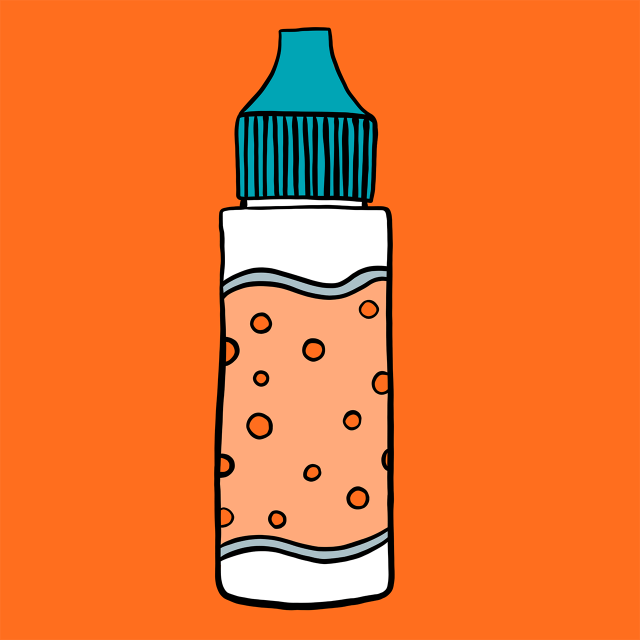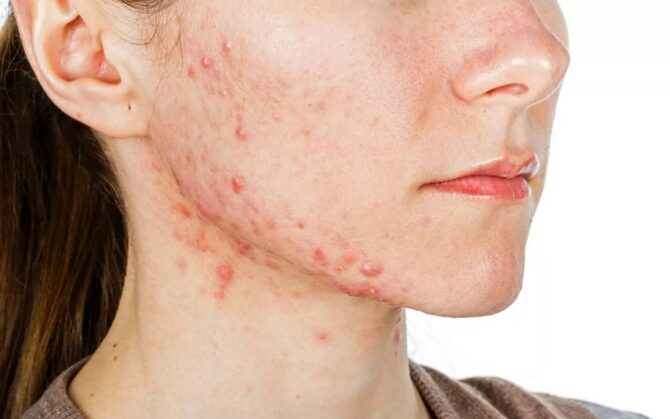Which ingredients should I look for in an effective anti-acne serum?
There are lots of different anti-acne serums available on the market. Here are some of the main ingredients to look out for, which are explained in more detail in the following sections:
- Beta hydroxy acid (BHA/salicylic acid): helps to unclog pores
- Retinol: reduces oil production and increases cell turnover
- Niacinamide (a form of vitamin B3): reduces oil production and inflammation
- Benzoyl peroxide: exfoliates pores and kills bacteria
What is beta hydroxy acid (BHA) and its role in anti-acne serums?
Beta hydroxy acid, BHA, or salicylic acid is a type of chemical exfoliant that is one of the best ingredients for deep-diving into pores to clear them out. That’s why it can be so good in anti-acne serums. It’s particularly good as it’s oil-soluble and so can get into the pores and exfoliate the pore lining from within. This means less congestion of pores, and hence less acne. BHA is also anti-inflammatory, so it calms down redness in blemishes while going about its business.
Is retinol a suitable ingredient for acne-prone skin?
Retinol serum can be fab if you have spots, as it reduces oil production in the skin by shrinking the oil glands. It also helps with post-inflammatory hyperpigmentation that can be left behind after you’ve had acne, and improves skin repair, by encouraging collagen production in the skin, to heal the damage from acne lesions.
However, it’s important to note that you should start retinol slowly as it can worsen irritation and cause ‘purging’ breakouts if you overdo it.
How does benzoyl peroxide work in serums for acne?
Benzoyl peroxide is an ingredient that sinks through oil and sebum into the follicles, exfoliating the lining of the pores and hence clearing them out. It’s also anti-inflammatory and kills the bacteria that can cause spots, so it’s a brilliant ingredient for combating acne.
Can anti-acne serums help with redness and inflammation?
Yes, they definitely can. In fact, for many anti-acne serums, inflammation is one of the main things they are aiming to reduce, alongside your breakouts of course. Here are three ingredients to look out for if redness is a big part of your breakout-prone skin:
- Niacinamide: reduces both oil production and inflammation, so it’s great for treating acne-prone skin.
- Epigallocatechin-3-gallate: (an antioxidant found in green tea) helps to reduce inflammation.
- Growth factor serums: such as TGF-beta (transforming growth factor beta) can reduce both inflammation and the pigmentation left behind by acne by speeding up the wound-healing process.
What are alpha hydroxy acids (AHAs) and their effects on pores?
AHAs can’t dive deep into your pores like AHAs, but they can still help to some degree to unblock clogged pores. Serums containing alpha hydroxy acids (AHAs) like glycolic and lactic acid have a superficial exfoliating effect on the skin which can prevent pores from being blocked by dead skin cells and then becoming inflamed.
Do anti-acne serums contain antioxidants like vitamins C and E?
It’s not necessarily a must-have feature, but protective ingredients such as vitamin C and E can be a great feature within your acne skincare routine. Vitamin C serum, which is an antioxidant, assists with the production of collagen in the skin, and helps boost skin healing that way. Antioxidant serums containing vitamin E help to heal the skin more quickly, too






 The Tweakments Chatbot
The Tweakments Chatbot